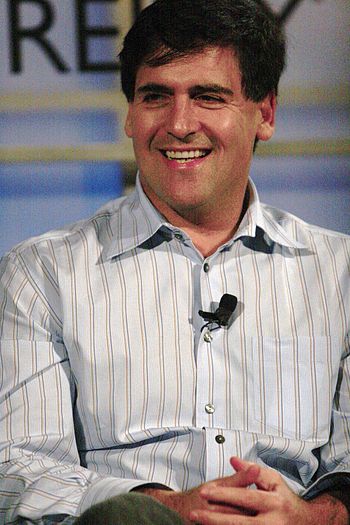
Image via Wikipedia
Although I agree with Jack Mazzola in theory, he does not understand the reasoning behind the city’s actions and he is over dramatizing the impact of the utility’s proposed network. Mr. Mazzola has it correct that selling communications services is best left to private enterprise. The government should not be in the business of providing telecommunications services. It could provide the last-mile infrastructure to service providers that want to offer voice, video, and data services, because building such a network for a single service provider is cost prohibitive. The city should facilitate competition for private enterprise by providing a utility that a single provider could not afford to build on their own.
I am sure that the city would collect franchise fees from multiple service providers other than Charter, but the economics are not viable for Charter and other providers to build multiple networks. Once again I return to the fact that building a broadband network costs a bit over $1,200 per home passed in small communities. Divide the market in two and the cost doubles which extends the time for a positive rate of return to over 3 years. Too much for public companies.
The city is wise in its intention to amortize the cost of building a fiber network across different uses. The fiber has the capacity to support multiple services and applications. By apportioning the cost based on bandwidth used by a service or application, electricity customers will pay much less than if they had to foot the bill for the whole fiber network; negating the “rate hike” Mr. Mazzola mentions. Higher value and bandwidth services would pay their fair share which would increase the revenue to pay for this endeavor.
Mr. Mazzola’s arguments of over regulation and loss of freedoms/privacy are a little overstated. There is the potential for citizens to apply pressure on the utility to restrict certain types of “information” that Mr. Mazzola refers. Providing an open-access infrastructure is the way around that problem because the city is not involved in the actual content of the services.
I admire Mr. Mazzola’s principles in an age where so many of the principles of which this nation was founded are being discarded, but he needs to be a bit more constructive in his thought. If he would like to see free enterprise flourish and receive innovative services then he should support the city building an open-access fiber infrastructure to be used for the smart grid and competitive communication services. These goals can be achieved with the privacy and financial transparency his group is questioning. Opelika citizens head to the polls in about a week. If the ballot measure is approved, then citizens like Mr. Mazzola should remain involved and shape the network to achieve their goals of free enterprise and free flowing information.
By Donathan Prater | Staff Writer
While many expect Opelika voters to give the city the nod when they head to the polls on Aug. 10 for a referendum that would create a city-owned telecommunications company, that feeling isn’t unanimous.
Some opponents plan to attend the public hearing in the Opelika City Council chambers Tuesday to voice their concerns.
Continue reading









 RALEIGH, NC – North Carolina legislators recently killed a proposed bill by state Senator David Hoyle (D-Gaston) that would have put a moratorium on municipal broadband efforts, but the issue is likely to arise again in January, say community activists in favor of continuing to allow cities to build their own broadband networks.
RALEIGH, NC – North Carolina legislators recently killed a proposed bill by state Senator David Hoyle (D-Gaston) that would have put a moratorium on municipal broadband efforts, but the issue is likely to arise again in January, say community activists in favor of continuing to allow cities to build their own broadband networks.